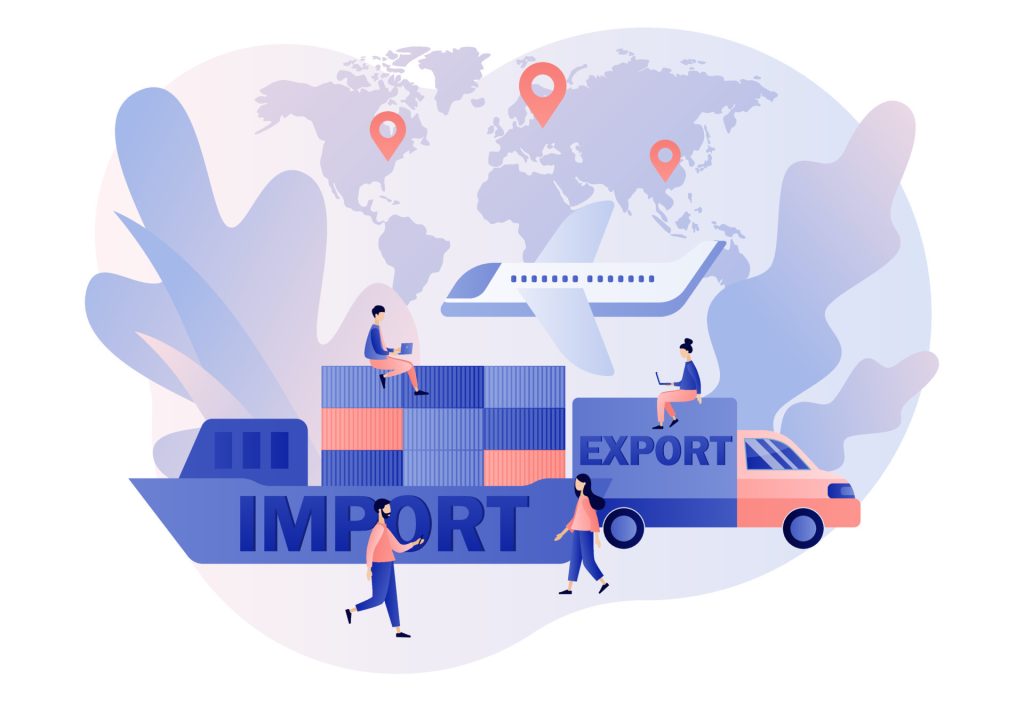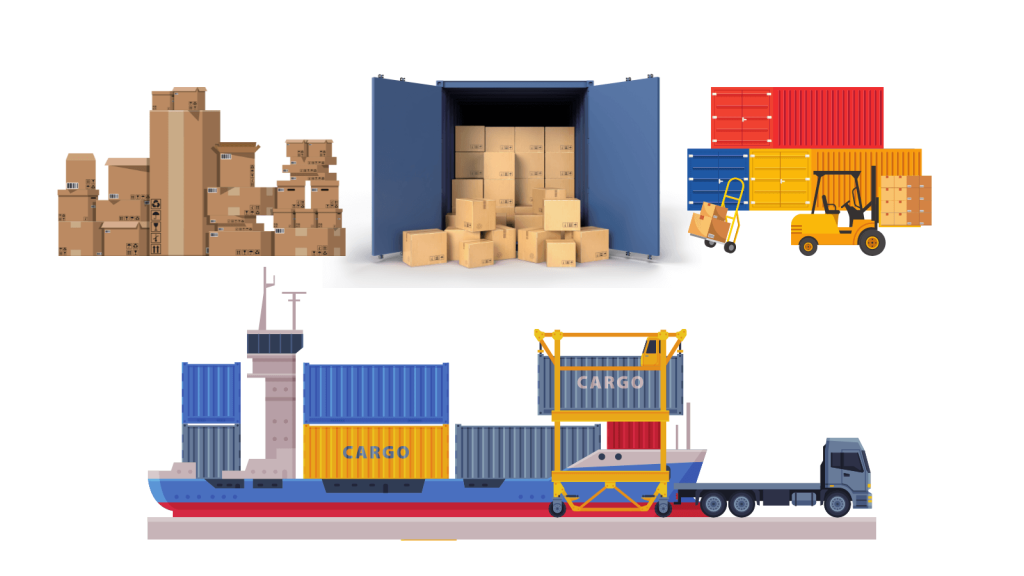Consolidated Shipping for Small Businesses Importing from China
Introduction
For small businesses in Europe and North America, importing from China can offer competitive pricing and expanded product ranges—but shipping costs, complex logistics, and customs hurdles often feel overwhelming. Consolidated shipping combines multiple small supplier orders into a single shipment, delivering improved cost-efficiency, smoother customs, and scalable logistics. In this in-depth guide, you’ll learn how consolidation works, why it benefits SMBs, how to implement it effectively, and SEO-rich strategies to integrate it into your content.

1. Why Consolidation Matters for Small-Scale Importers
1.1 Lower Unit Shipping Costs
By merging multiple LCL (less‑than‑container‑load) or LTL (less‑than‑truckload) consignments into one container, small businesses share costs across participants. As reported, five individual LCL shipments might cost $12,500, but the same consolidated FCL shipment comes in at $7,800—a 38% reduction in freight alone. Combined with steep drops in customs broker fees (‑73%) and insurance (‑47%), total savings can exceed 40‑50%.SendfromChina.SFC迅达信息网
1.2 Enhanced Logistics Efficiency
Consolidators frequently operate fixed routes and regular schedules, offering accelerated shipping cycles versus ad‑hoc individual parcels. This can significantly reduce transit times while improving predictability.FreightAmigo
1.3 Simplified Documentation & Customs
Rather than managing separate commercial invoices, packing lists, and customs entries for each supplier, you submit a single consolidated shipment manifest, easing customs clearance and reducing delays.华海航运+14TecEx+14bansarchina.com+14
1.4 Improved Cargo Security
Fewer handling points—loading consolidated goods once at origin, then shipping to destination—cuts exposure to theft, damage, or loss. Consolidated pallets and standardized packaging further protect goods.DATSendfromChina.SFC
1.5 Environmentally Friendly Logistics
Shared container space and fewer shipments reduce emissions per unit. Consolidated transport is typically greener than multiple separate deliveries—a sustainability boost for conscious SMB brands.Dimerco+1
2. How Consolidation Shipping Works: A Step‑by‑Step Process
Step 1: Supplier Coordination & Pickup
- Multiple Chinese suppliers ship their packages to a consolidation warehouse or partner.
- Forwarders or consolidators arrange pickups or supplier drop-offs, scheduling for periodic consolidation.
Step 2: Sorting, Inspection, and Repalletization
- Inspection verifies product quality, counts SKUs, checks packaging.
- Packages may be grouped, repacked or palettized to meet standard container or LCL requirements—often with optimized packing to avoid void space.justchinait.com
Step 3: Documentation Consolidation
- The forwarder generates a single shipping invoice, cargo manifest, and customs entry with aggregated HS codes.
- This consolidated export documentation speeds up customs clearance in Europe or North America.SendfromChina.SFCTecEx
Step 4: Loading & Shipping
- Consolidated goods are loaded into a container or pallet for sea, air or multimodal transport.
- Further transport within destination country (EU or US) is arranged via trucking or rail. Intermodal containers may transfer seamlessly without unpacking.维基百科FreightAmigo
Step 5: Final Delivery & Unpacking
- Once cleared through customs, the container or pallet is delivered to a warehouse or final address.
- Goods are unpacked or distributed to individual stock locations or clients.
3. Key Benefits Specifically for SME Importers
• Minimized Inventory Holding Costs
Consolidated imports allow less frequent shipments with larger volume—reducing storage fees and improving stock predictability.Fit Small Business+11Dimerco+11examinechina.com+11tcbgroup.com+4SendfromChina.SFC+4TecEx+4
• Greater Access to Diverse Suppliers
Mix and match across multiple suppliers (e.g. electronics, apparel, accessories), enabling consolidated shipping even if order volume is small.
• Customizable Shipping Method
Choose LCL, sea freight, rail, or express-labeled shipments depending on time increment and budget.
• Strengthened Customer Service
Consolidated logistics reduce unpredictability, delays, and errors—translating to more reliable restocking and customer fulfillment.TecEx迅达信息网

4. When Consolidated Shipping May Pose Challenges
- Incompatible goods: fragile, hazardous, or temperature-sensitive items may need special handling and may not mix well with general cargo.TecExbansarchina.com
- Rigid scheduling: individual suppliers may lose flexibility if deadlines don’t align.
- Coordination complexity: requires disciplined tracking and coordination among multiple suppliers and the consolidator.
5. Choosing the Right Consolidation Partner or Forwarder
Freight Forwarder Expertise
Look for providers with experience consolidating shipments from China to Europe or North America, offering warehousing, documentation support, and end-to-end visibility.维基百科FreightAmigo
Transparent Cost Structure
Ensure pricing includes freight, customs clearance, documentation, duties/VAT, and last-mile delivery. If possible, negotiate per‑kg or pallet rate rather than per‑shipment markups.
Documentation & Customs Support
Your partner should assist with HS classification, customs filings, duty/VAT pre-calculation, and EORI/EIN compliance for EU/UK/US shipments.
Tracking & Technology
Real-time shipment tracking, inventory management dashboards, and seamless communication portals help avoid errors and misalignment.
6. Region-Specific Guidance for Europe & North America
Europe (EU/UK)
Small businesses must register for EORI numbers, calculate VAT, and handle import duties. Use DAP or DDP Incoterms for clarity on who pays what. Provide accurate CE markings if required.trade.ec.europa.eu
North America (USA/Canada)
Accurate HS codes and proper customs documentation are essential to avoid CBP holds. Duty-prepay (DDP) vs. DAP options affect landed cost. Use forwarders familiar with FDA/CPSC regulations as needed.
7. SEO Strategy: Content Structure & Keywords
Suggested Keywords
- “small business consolidated shipping China”
- “China import consolidation for SMEs”
- “LCL freight China to Europe small business”
- “import consolidation small business USA EU”
Headings & Structure Tips
- H1: Consolidated Shipping for Small Businesses Importing from China
- H2: Why Consolidation Matters for Small-Scale Importers
- H3: How Consolidated Shipping Works
- H2: Benefits for European & North American SMEs
- H2: Choosing a Reliable Forwarder
- H2: Conclusion & Final Takeaways
Benefits: use bullet lists with keywords, internal links to your customs or shipping regulatory pages, and optimized metadata.
8. Summary of Key Benefits for SME Importers
| Challenge | How Consolidation Helps |
|---|---|
| High per-order shipping costs | Shared container space slashes unit cost |
| Complex customs per shipment | Single consolidated documentation |
| Multiple supplier coordination | One pickup → one pallet/container |
| Exposure to damage/theft | Fewer touchpoints, better packaging protection |
| Environmental impact | Fewer shipments, lower emissions per unit |
